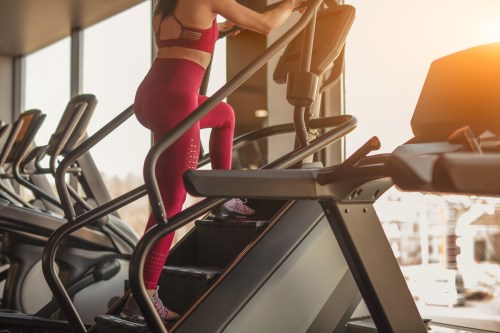Our editors independently select these products. Making a purchase through our links may earn Well+Good a commission
Period poverty—defined as inadequate or inconsistent access to menstrual hygiene products and education—has long been an issue affecting homeless and low-income people with uteruses in the U.S. In 2019, a survey of low-income women in St. Louis, Missouri found that 64 percent of respondents were not able to afford period products at some point during the previous year, and 21 percent couldn’t afford them on monthly basis. Without access to these products, people can experience shame and stigma, and may even be forced to miss school or work because they have no way of managing their menstrual flow or symptoms.
Experts in This Article
Lamanda Ballard is the founder and executive director of Flo Code.
Unfortunately, the COVID-19 pandemic has only exacerbated the issue of period poverty thanks to rising poverty levels and record unemployment rates. Advocacy group I Support the Girls has seen a 35 percent increase in demand during the pandemic for products among women and girls, especially in homeless shelters, correctional facilities, foster care, and LGBTQ organizations, exposing the inequities faced by menstruating humans.
One of the factors that continue to hamper menstrual equity is the period tax, a tax imposed on menstrual hygiene products. While some states have made moves to end the taxing of menstrual products, there are still 30 states that uphold some form of this tax, including Texas. (According to Tax Free Period, Texans can buy dandruff shampoo tax-free, but not tampons. Make it make sense please.) There have been multiple attempts to reform this tax since at least 2017, but nothing has yet passed the legislature. (Since May 2019, a Texas bill to eliminate the tax for menstrual hygiene products has been left pending in the committee, and a new one has been filed by Representative Donna Howard in 2020.)
All of these reasons are why Lamanda Ballard founded Flo Code, a non-profit organization based in Austin, Texas with a mission to make menstrual products accessible, especially for Black, Indigenous, and people of color (BIPOC) and low-income communities. After growing up in poverty and volunteering at Front Steps, a non-profit organization offering services to people experiencing homelessness, Ballard noticed menstrual products were the least-donated item despite there being a need for them.
“My family grew up in section eight housing. I remember there were times where I didn’t have access to menstrual products. It’s always been an issue,” Ballard says. These products cannot even be purchased with food stamps or Medicaid—federal- and state-funded assistance programs for low-income folks. “We really don’t believe that people should be paying for something that’s a medical necessity,” she says.
Since its founding in 2017, Flo Code has donated over 500,000 menstrual products to schools, churches, and homeless shelters in Texas, and raised a whopping $18,000 in two weeks for Hurricane Harvey relief. Ballard has also worked with Texas politicians, including Representative Howard, to make period products tax-free in Texas. Through community outreach efforts, Ballard and the Flo Code team are working to support Howard’s new HB 321 which would seek to end the state’s period tax in 2021.
In order to donate so many supplies, Flo Code throws menstrual packing events to organize donated period products—which Ballard likes to call “Flo parties.” Pre-pandemic, she regularly mobilized 300 volunteers at these parties to pack pads, tampons, liners, and wipes for distribution. She says these events also bring the community together. “We’ll invite a speaker so that could be a local company who creates menstrual products, a local doctor, OB/GYN, or nurse to educate the community on things they may not be comfortable asking their doctor,” says Ballard.
Because of the COVID-19 pandemic, Ballard and her team switched gears and started hosting Flo parties online. “Usually, our events are in person. The community comes in and brings those items to us. So this is the first time we were in a situation where we had to find alternative solutions for people to participate and serve the community,” says Ballard. Currently, Ballard and her team are meeting and packing products virtually. Since the start of the pandemic, Flo Code has distributed 62,000 menstrual products to menstruating humans in need.
While the organization is led by volunteers, Ballard aspires to secure funding to hire her own employees. “I would love for us to get to a point where we can have our own employees so that way, we’re not only pouring back into our community, but we’re ensuring that we’re providing,” says Ballard. She also hopes to partner with larger companies like Kotex so that Flo Code can have a steady stream of menstrual products to donate. “Hopefully, by 2022, we hit our one million mark,” she says, referring to how many products donated.
In the meantime, there are a few ways to support the work of Flo Code. First, you can donate products or purchase directly from Flo Code’s Amazon wishlist. The organization accepts pads, tampons, panty liners, wipes, menstrual cups, and underwear. You can also make a direct contribution online. By donating $10, Flo Code can support a person’s period for at least two months. If you’re looking for other ways to give in lieu of money, consider hosting a virtual Flo party. You can follow Flo Code on Instagram to keep up to date about upcoming Flo parties.
While ending period poverty might seem like a pipe dream, Lamanda Ballard has taken steps to inch closer to a world in which vulnerable communities in Texas don’t have to struggle for basic necessities. “Whatever state you live in, make sure that your city support those efforts for the Black community, people of color, that are low-income to make sure that they have access to things that are a medical necessity,” Ballard says.
Oh hi! You look like someone who loves free workouts, discounts for cult-fave wellness brands, and exclusive Well+Good content. Sign up for Well+, our online community of wellness insiders, and unlock your rewards instantly.
Sign Up for Our Daily Newsletter
Get all the latest in wellness, trends, food, fitness, beauty, and more delivered right to your inbox.
Got it, you've been added to our email list.











